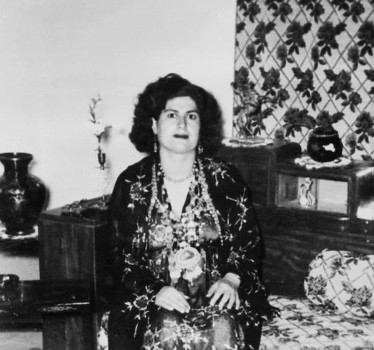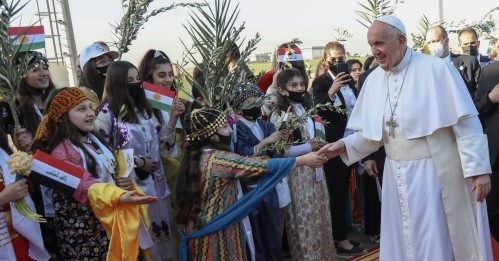Hawkar Sabir gasps for air, his damaged lungs working at a mere 15% of their capacity. Every four months, a pack of medication offers a temporary reprieve from the constant struggle to breathe. A single, brutal truth hangs heavy: a lung transplant is his only hope.
But Sabir is a fighter. Married with three children, he refuses to succumb to despair.
In 1988, the final throes of the Iran-Iraq War unleashed a horror forever etched into Kurdish memory. Chemical weapons, rained down on the Kurdish city of Halabja by the Ba’ath regime led by Saddam Hussein, killed 5,000 people, mostly women and children. Sabir is one of the many left to bear the scars.
“There’s no cure,” he rasps, “except to replace my lungs. These meds just fight off the shortness of breath for a while.”
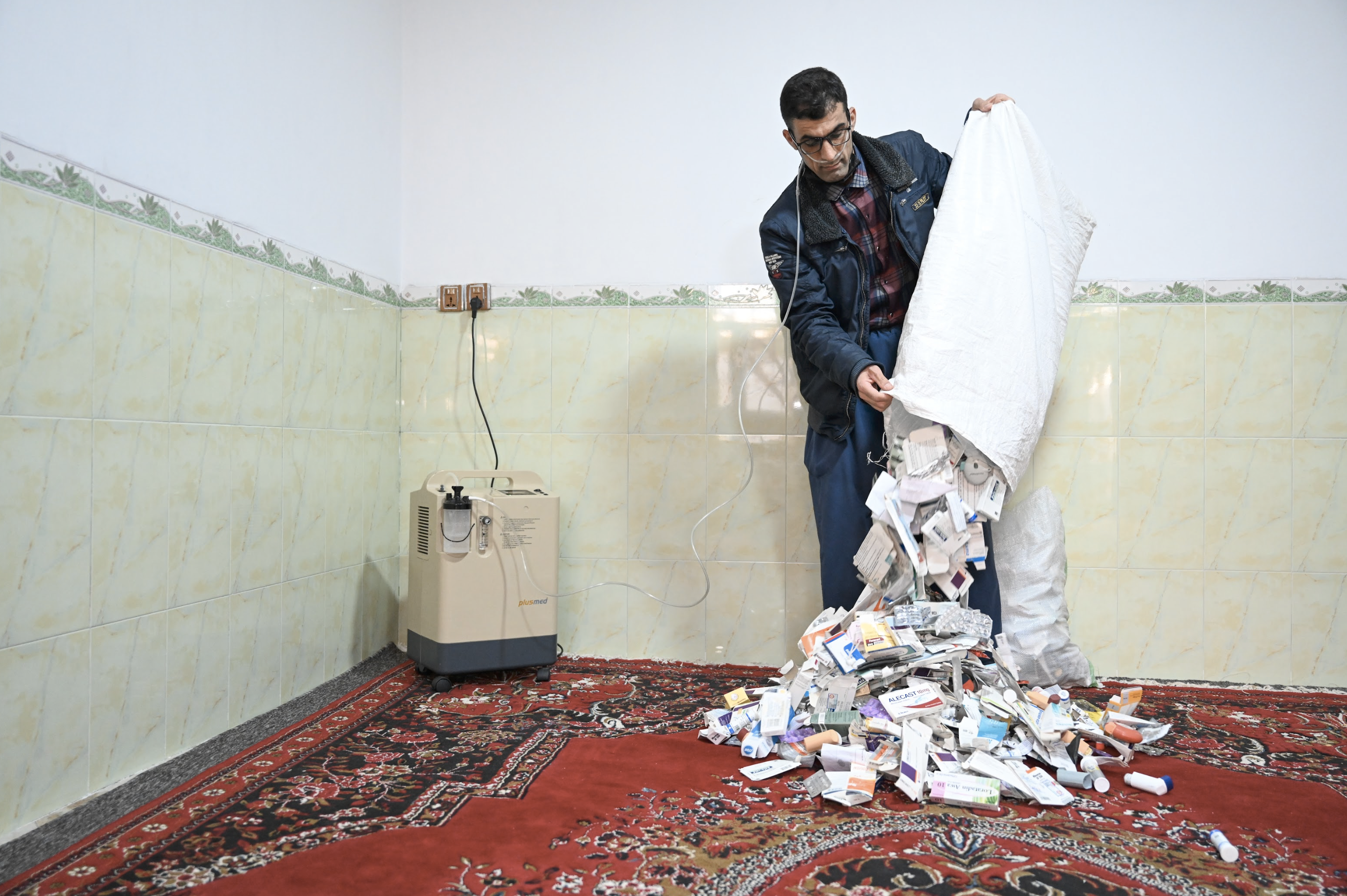
Sabir is far from alone. Countless others bear the invisible wounds of that attack.
Each day, Sabir’s life is a constant battle. An artificial respirator becomes his unwelcome companion, dictating his every move. The joy of simple work, of providing for his family, is a distant memory. His wife’s teaching salary is their lifeline, a bitter truth for a man who longs to be the provider.
The list of medications is a testament to his suffering: chest expanders, eye drops, skin treatments, and even psychiatric drugs to manage the anger simmering beneath the surface. The chemical attack stole not just his breath, but a part of who he was.
His condition also drove him to sell the family house, a desperate gamble for survival. Winter’s icy grip and shortness of breath meant no car could reach them in their old home. Now they are closer to the hospital, but at a heavy cost.
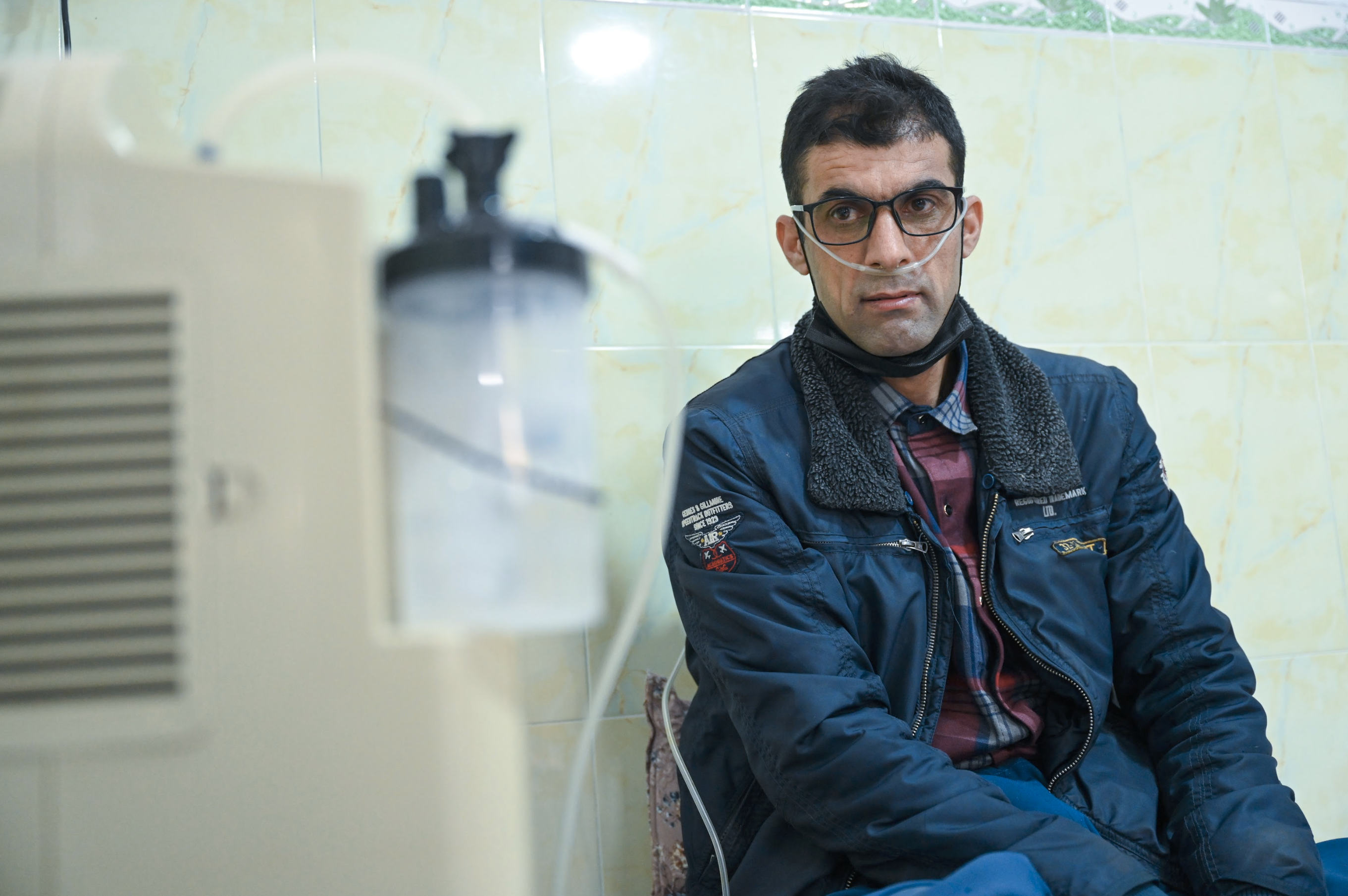
The true weight of his burden lies not in the physical limitations, but in the stolen moments of fatherhood.
“I can’t touch my kids,” Sabir whispers, his voice thick with emotion. “I can’t hold them close, like any father should. It feels wrong.” Social interactions are a source of anxiety, leaving him feeling like an outsider in his own world.
Medical reports paint a grim picture – 85% of his lungs are non-functional, demanding that he spend at least 17 hours a day hooked up to oxygen tanks. This has been his reality for 36 years.
There are brief flickers of hope. Kamil Abdulqadir, another victim, found success with a lung transplant in Germany. “I’ve applied to the Kurdistan Region’s Ministry of Health to receive similar medical support,” Sabir says. “But the financial crisis...” His voice trails off.
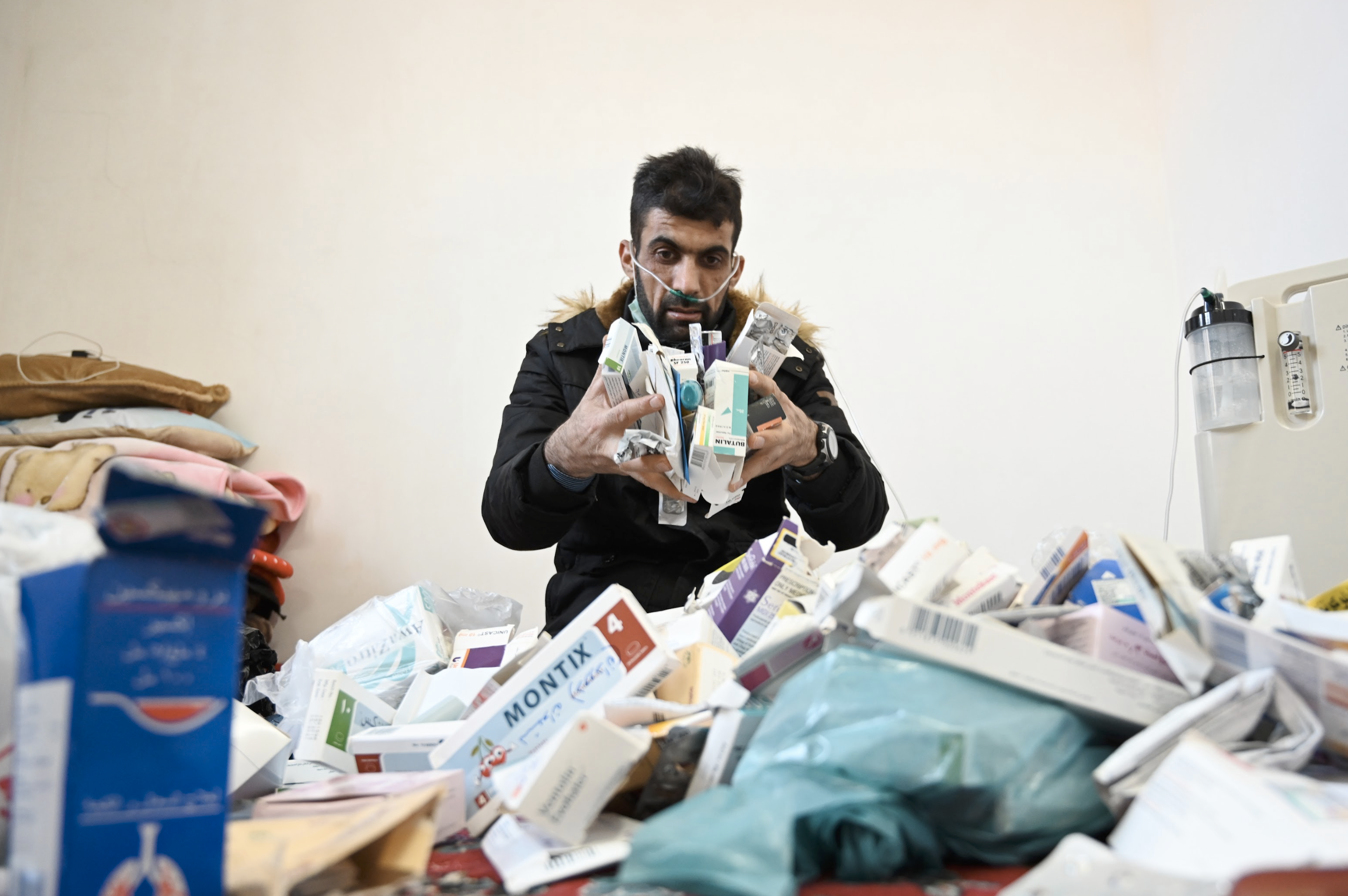
He and his oxygen machine are inseparable companions, a constant reminder of his limitations. The simple joys of life – buying his children clothes, taking them to the park – are a cruel mirage. Sleep is often elusive, haunted by the phantom sensation of suffocation.
Sabir’s dream is a stark reminder of what he has lost – the ability to breathe freely, to be a father, to simply exist without the constant hum of his lifeline. With every ragged breath, he yearns for the day he can discard the oxygen mask, to finally inhale the sweet air of freedom, and to fulfill the most basic human desire: to simply live.
Peshraw Mahdi is a freelance journalist and photographer with substantial experience in the field, having worked for numerous media agencies over several years. He has won multiple awards in photojournalism.
